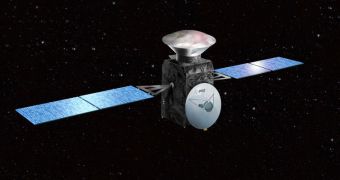Officials at the American space agency say that they plan to begin work on developing a scaled-back version of a previously-proposed mission to Mars. However, the current budget for FY2013 does not allow for such a mission, so NASA needs to shuffle some of its funds around.
According to analysts, it could be that some of the money allotted for the support of outer planet missions may be redirected towards the Mars Next Generation project. NASA wants to spend about $30 million on the spacecraft by the end of 2012.
This cross-agency effort was originally planned as a larger mission, but the 2013 budget proposal cut funds dedicated to planetary exploration by about 20 percent for the next fiscal year, Space reports.
Unfortunately, this also included all projects meant to explore Mars. The thinking in Washington was that, with the launch of the Mars Science Laboratory (MSL), NASA should focus its attention elsewhere. But this line of thought is misguided, scientists say.
Mission such as the MNG and the ExoMars Trace Gas Orbiter (which NASA was supposed to conduct in collaboration with the European Space Agency) are critical for understanding whether our neighboring planet was ever capable of supporting life in any form.
NASA estimates that the new mission will cost about $700 million, and that it could potentially be launched sometime between 2018 and 2020. But this schedule could be subjected to delays as well.
“NASA is committed to develop an integrated strategy to ensure that the next steps for the robotic Mars exploration program will support science, as well as longer-term human exploration and technology goals,” Charles Bolden said.
The NASA Administrator made the statement in a letter he addressed to Congress lawmakers on February 13. “NASA will also actively seek the collaboration of our international partners,” he added.
However, many analysts wonder whether Russia or Europe will want to collaborate with NASA anymore. “The concern is credibility with NASA and the U.S. government, really, in the eyes of the world in terms of whether they would dare to collaborate with us,” David Des Marais says.
The NASA Ames Research Center (ARC) geochemist says that the American space agency already left ESA hanging by withdrawing from the ExoMars initiative. This forced ESA to look for a delivery system elsewhere, and also to scale back on its mission as well, due to cost overruns.
It's highly unlikely that the Europeans will agree to get involved in Mars Next Generation, but only time will tell. Keep an eye on this space for more on this topic.

 14 DAY TRIAL //
14 DAY TRIAL //